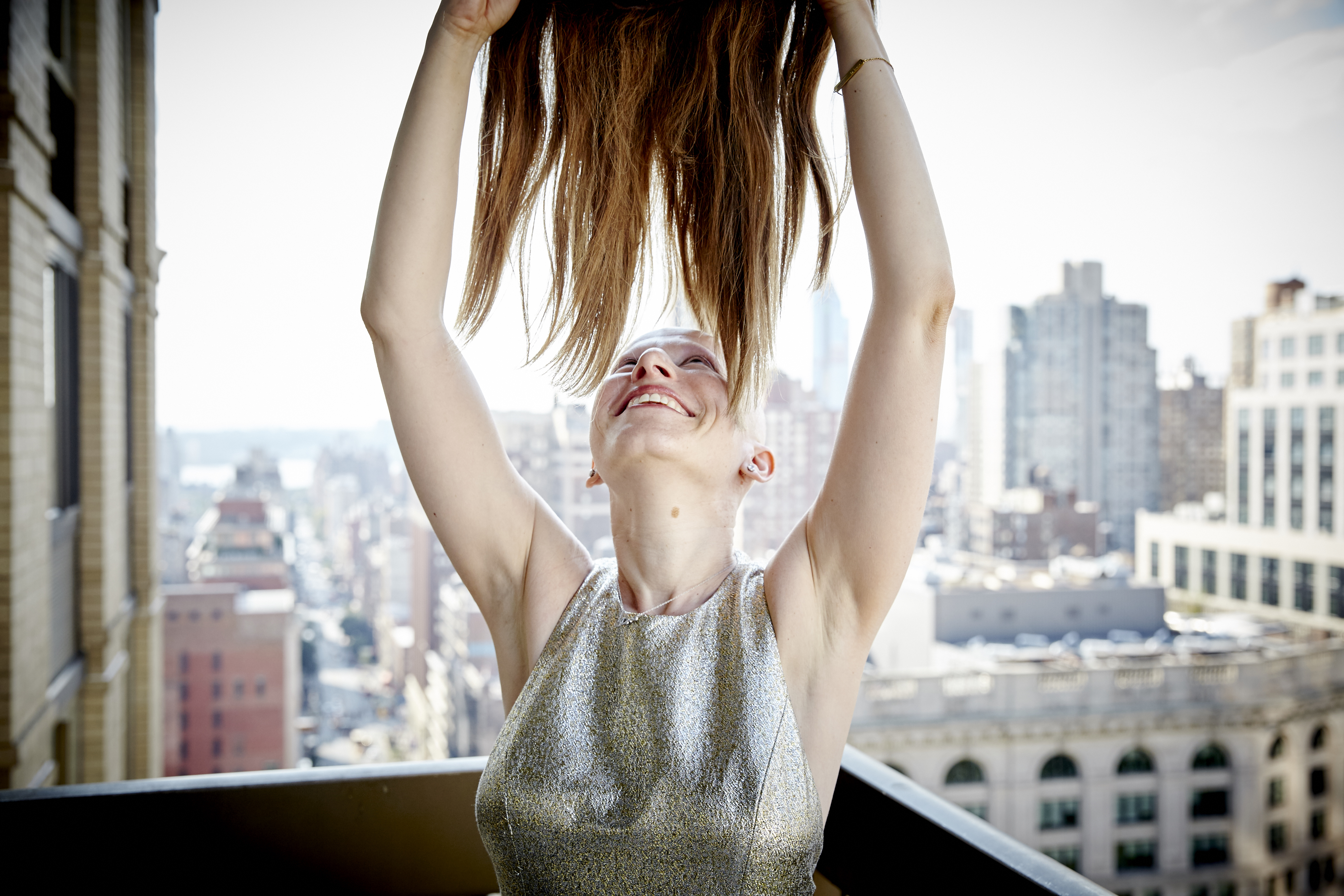I first shared these reflections at my synagogue, Temple Beth-El of Great Neck, on Yom Kippur a year ago.
***
The way that I think about Yom Kippur, it’s a day in which we are figuratively naked, when we own all of ourselves, including the imperfections we usually try to conceal. Our prayers, today more than ever, are transparent and honest. Our walls and pretenses come down as we let ourselves be completely seen in all of our vulnerable truths.
What if, hypothetically, we lived each day with one another as openly as we live Yom Kippur with G-d?
I spent the better part of my first 40 years striving for the opposite of vulnerable: perfect. Perfect grades, perfect schools, perfect jobs, perfect life. Except, of course, that perfect isn’t ever really perfect. It’s usually unattainable and definitively not sustainable and, moreover, no matter how hard we try to control our lives or how on top of things we believe we are at any given point in time, some outside force is, inevitably, going to enter our bubble, disturb the equilibrium, and ultimately create a new normal.
My new normal began last December when I was diagnosed with breast cancer. In the time since, I have lost both my breasts, all of my hair, and, at times, the fierce independence I have exercised my entire life. My mom held my hand as I sobbed awaiting a second biopsy and I saw my dad’s tears mirror my own in a tough oncology consult. For almost two weeks after my surgery, my sister changed my bandages and helped me shower, and my brother slept at my apartment and helped me empty the 4 surgical drains that hung from my body. Friends redefined friendship as they showed up in far deeper ways than I’d ever before needed or allowed. Perhaps the most special moment I have EVER shared with a friend was 4 hours after I had my head shaved. Losing my hair was way harder than losing my breasts, and my initial relief that my naked scalp had no weird birthmarks or bumps was quickly replaced with the reality that I was now completely bald. Erin and I sat facing one another and she encouraged me to touch my head, never breaking eye contact, holding space for me to explore my changing body safely and, when I initially struggled, staying put and fully present until I found the courage to comply and strength to surrender.
One of the most profound lessons of this year is that some of the most beautiful moments of our lives come when life is far from perfect. This year has been challenging, exhausting, and frightening at times, yes, but it has also shown me parts of humanity I had never before seen because I had never before let myself fully be seen. And therein lies the catch: these moments can only occur when we truly, fully, completely let one another in, when we drop the walls or masks of perfection and admit when everything really isn’t “fine.”
At a conference last week, attendees’ name badges included a photo, and I’d submitted my professional head shot from a few years ago. Early in the day, in a circle of about 6 people, none of whom I knew, one asked me when I’d cut my hair. By now, my short locks look like a choice, not the remnants of chemo, so I easily could have said “March” and left it at that. Instead, I invited those strangers in by sharing the story of my hair and, in turn, my year. And here’s the thing: after I shared, they did, too. One of them had been her mom’s chemo buddy, and another had a friend recently experience this herself. By choosing to answer honestly, I likely connected with those folks in a much deeper way than I would have otherwise.
Twenty eight years ago, on this very bimah, I became a bat mitzvah. What I remember most about that day, all these years later, is sadly not tied to the journey or life significance of the ceremony, but rather the undue pressure I put on myself to deliver my Torah portion, along with everything else I read, flawlessly. Merely thirteen, I had already convinced myself that the only meaningful ceremony would be a perfect one.
I came here today with a very different goal, perhaps even the opposite one: to let you see beneath the surface, to witness not my projection of perfection but rather the beauty in imperfection. Kintsugi is the Japanese art of repairing broken pottery with fillings that include gold, treating the cracks as something to value, not disguise. As I look at my own body, I can honestly tell you that I unexpectedly love the physical scars I feared, and there is a big part of me that doesn’t want them to fade. They remind me that, with this journey, I have gained far more than I have lost.
My wish for all of us, as we enter this beautiful new year, is to deeply share and truly connect: heart to heart, scar to scar. The last line of Avinu Malkeinu asks that G-d “treat us generously and with kindness and be our help.” Let us turn to one another in that same spirit, with that same generosity and compassion. It needn’t take cancer, or anything else traumatic, just the strength to share the vulnerability beneath your perfect with those you love most. Shana tovah.


